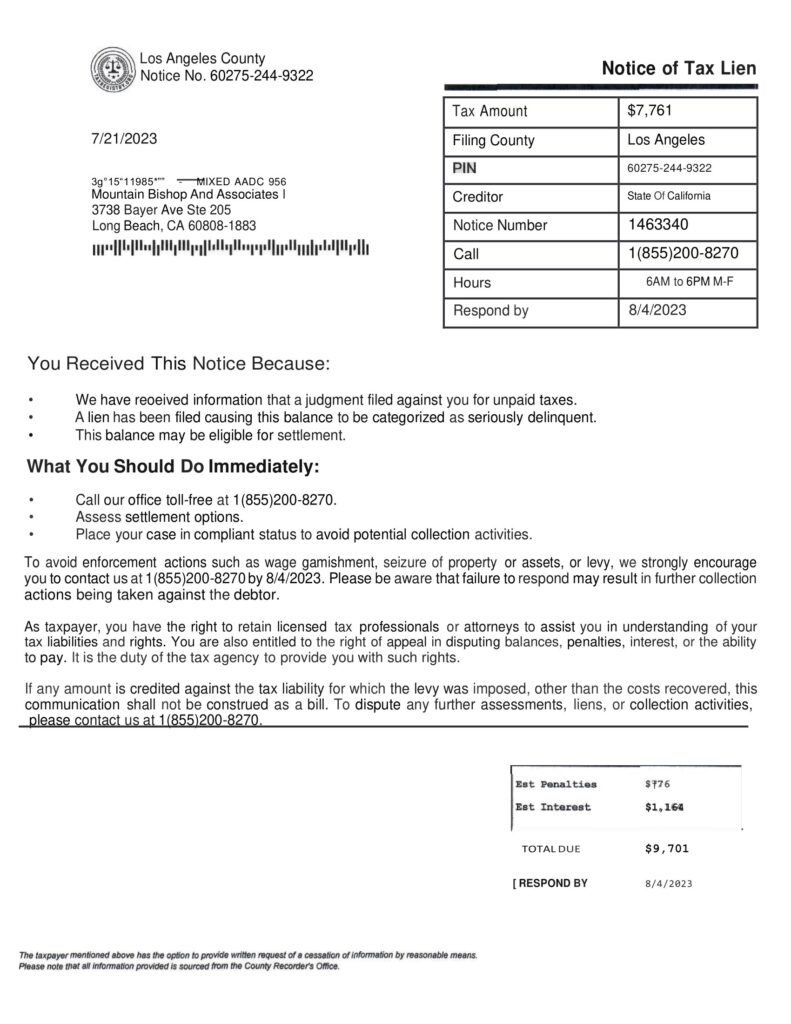We received this letter in the mail regarding, Notice of Tax Lien. We wanted to share this, so you don’t fall victim to these scammers’ shenanigans. To share my personal experience, when I received the letter, I contacted the number on the notice. The gentleman answered as the “tax settlement agency.” I told him I had received a notice and he asked me to provide the notice number which would be on the right side of the letter. After I provided this to him, I stated, according to my records, our taxes are current. I was immediately disconnected from the line. I forwarded the letter to our CPA who advised this is a scam. I filed a report on FTC, so they are aware.
Tax lien scams are unfortunately prevalent, and scammers often use official-looking letters and impersonate government agencies to deceive individuals into providing personal information or making payments. Here are some warning signs to watch out for to protect yourself from tax lien scams:
1. Official Government Communications: Verify the source of the notice. Official tax-related notices should come directly from the government agency responsible for tax collection, such as the State of California or the IRS. Be cautious if the notice is from an unfamiliar entity or county.
2. Urgency and Threats: Scammers may use fear tactics, claiming urgent actions are required to avoid severe consequences like arrest or property seizure. Legitimate tax agencies usually give individuals sufficient time to address any issues.
3. Typos and Grammatical Errors: Scammers often make mistakes in their communications. Look for misspellings, poor grammar, or formatting inconsistencies.
4. Unusual Payment Methods: Be wary if the notice demands payment through unconventional methods, such as wire transfers, gift cards, or cryptocurrency. Legitimate tax agencies usually accept payments through official channels, such as credit/debit cards or checks.
5. Request for Personal Information: Avoid sharing personal information, such as Social Security numbers or financial details, with unsolicited callers or through emails.
6. Independent Verification: If you receive a notice, independently verify the contact information of the agency and reach out to them directly using trusted sources to confirm the notice’s authenticity.
7. Stay Informed: Stay updated on common scams and share this information with your family and friends to protect them from falling victim to fraud.
If you suspect that you’ve received a fraudulent tax lien notice:
1. Do not engage with the sender: Avoid responding to suspicious emails or phone calls.
2. Report the scam: Inform your local law enforcement and the Federal Trade Commission (FTC) about the incident.
3. Notify your CPA or tax professional: Share the details with your tax professional for further review and advice.
Remember, Government agencies will not demand immediate payment or sensitive information through unsolicited calls, emails, or texts. Always exercise caution and verify the authenticity of any tax-related communication you receive.
Attached is a copy of what we received.

